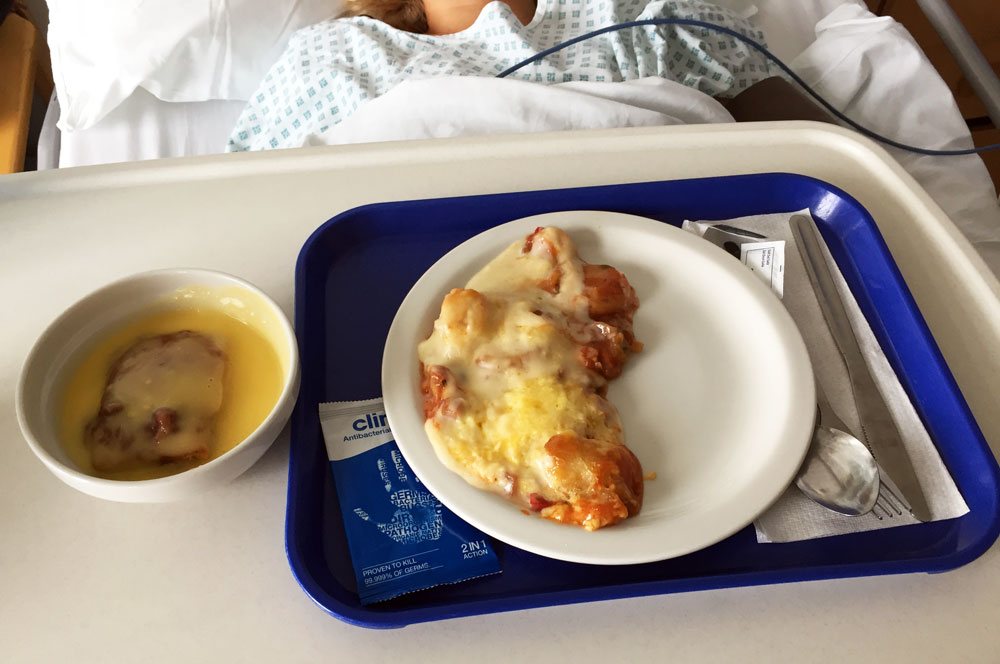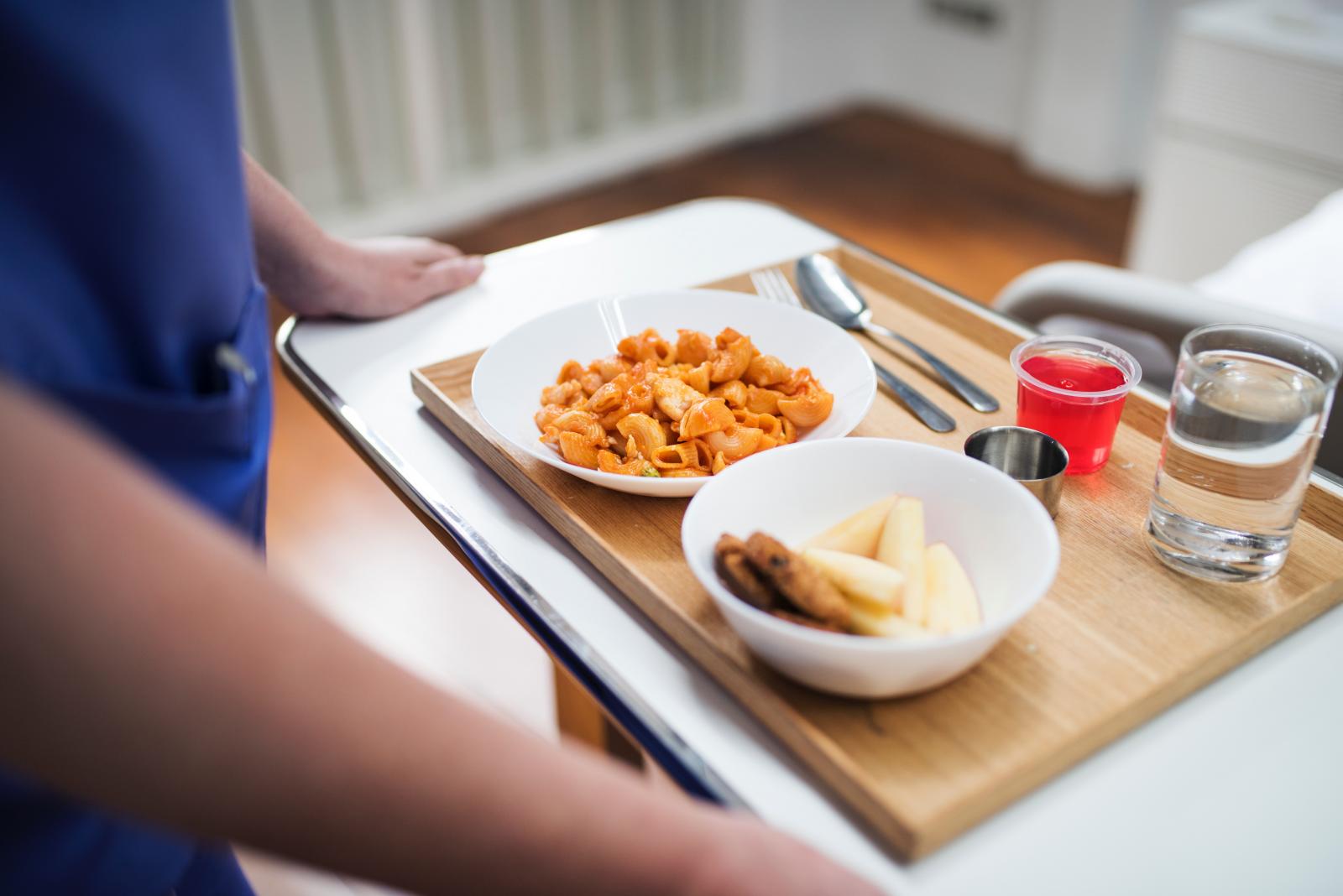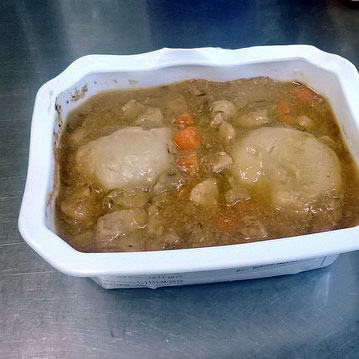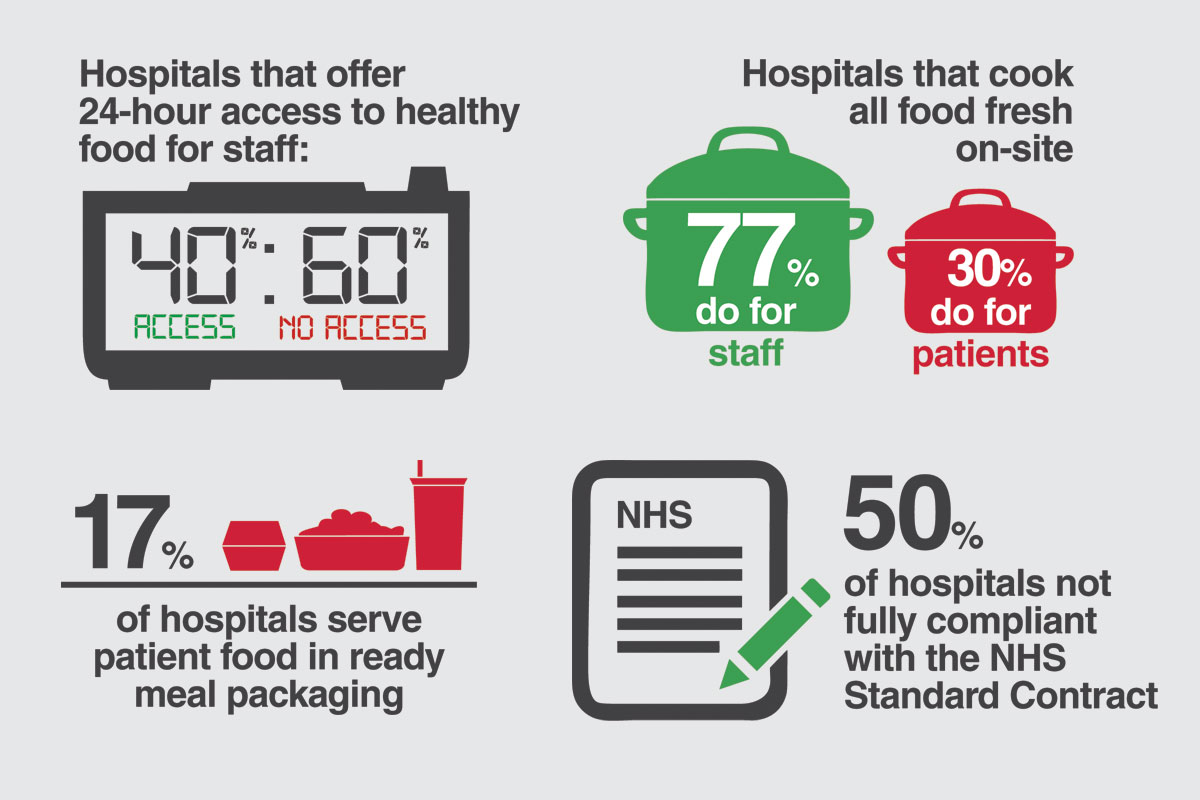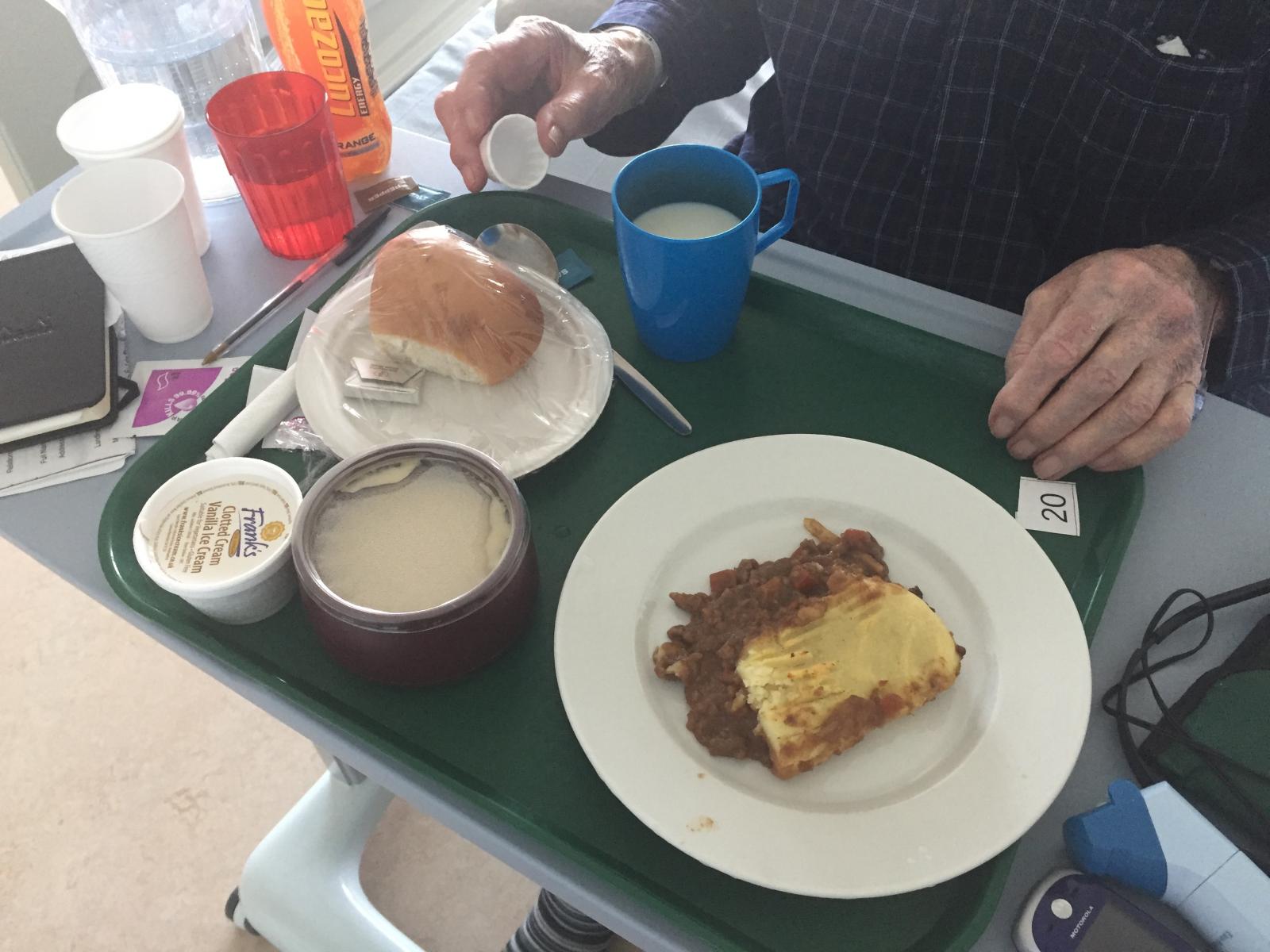New hospital food rules introduced
The new standards, enforced through legally-binding NHS contracts, will focus on quality, choice and promoting a healthy diet for patients and staff.
Hospitals will also be ranked on the meals they prepare.
The Campaign for Better Hospital Food said the changes were "woefully inadequate" and hard to enforce.
NHS hospitals in Scotland and Wales have nutritional standards in place.
Under the changes, hospitals will be ranked according to quality and choice of food, whether the menu is approved by a dietitian, the availability of fresh fruit and food between meals, the variety of options at breakfast - which should include warm food, and the cost of the food provided.
The rankings will be published on the NHS Choices website.
The new standards will require hospitals to provide:
- Fish twice a week
- Seasonal produce
- Tap water
- Cooked rice, potatoes and vegetables without salt
- Half of all desserts should be fruit
- Half of tea and coffee should be Fair Trade
The chairman of charity of Age UK, Dianne Jeffrey, has been working with the Department of Health to produce the new NHS standards for England.
She acknowledged that "hospitals are not five-star restaurants," but said meals were an important part of a patient's recovery.
Ms Jeffrey said there had been reports of patients being unable to feed themselves or even reach a glass of water.
She told the BBC: "When a person is in hospital they are in a very vulnerable state.
"It's very important that the food is attractive, it's appetising, it's palatable, it's nutritious, it meets the cultural and social needs of patients and also meets their clinical needs."
Michael Seres, from Radlett in Hertfordshire, has been a regular hospital patient for 30 years after being diagnosed with Crohn's disease when he was 12.
He says his worst experiences include macaroni cheese containing just four pieces of pasta, ice cream kept on top of hot food and sandwiches so wet "you could wring out the sandwich".
He said: "No doctor or clinician has ever advised me to eat the hospital food.
"If airlines can cope with multiple types of food that needs to be served for varying conditions or allergies, then hospitals can cater for it. Schools do, prisons do, on the high street restaurants and shops do, so why should it be any different in a hospital?"
But the Campaign for Better Hospital Food said the government had "pulled the wool over our eyes".
Alex Jackson, the campaign's co-ordinator said: "We want to see hospital food standards set down in legislation, similarly to school food standards, and therefore universally applied to all hospitals and protected by publicly elected representatives for generations to come.
"But the government still refuses to do this and has only committed to including the standards in NHS commissioning contracts, which are long documents full of clauses that without proper enforcement and monitoring can be ignored by hospitals.
"The government may have inserted a new clause in a legal document, but that won't be what most people consider to be legally-binding. It's woefully inadequate."
Robin Ireland, also a representative for the campaign, echoed Mr Jackson's sentiments, and said that some hospitals were currently delivering good food, but he wanted to see them all use fresh, local produce not just a few.
Labour described campaigners' concerns as "worrying", and said it was "regrettable" that Health Secretary Jeremy Hunt had published the standards without first consulting patients.
"Everyone wants to see the quality of hospital food improved, but without proper enforcement there is a risk that these new standards will simply be ignored," shadow public health minister Luciana Berger added.
However, Mr Hunt told the BBC that the NHS guidelines would be "treated very seriously" and "hospitals will be obliged" to apply the guidelines.
He added: "All of this is about looking after patients in the same way you would want your own friends or you own family to be looked after."
The chief executive of NHS England, Simon Stevens, said: "It is time for the NHS set a clear example in providing healthier food for our patients, visitors and also our hard-working staff. That's why NHS England has agreed to include hospital standards in the next NHS Contract, which will be published later this year."
The Scottish government introduced minimum nutrient and food provision standards in 2008.
And standards based on those developed in Scotland were adopted by Wales in 2011.
BBC website
29 August 2014
Published Friday 29 August 2014
Better Hospital Food: The campaign represents a coalition of organisations calling on the Westminster government to introduce mandatory nutritional, environmental and ethical standards for food served to patients in NHS hospitals in England.
